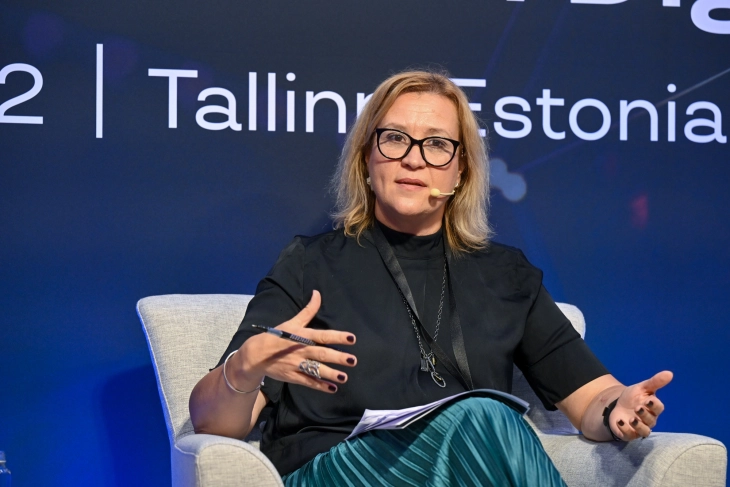Grkovska in Tallinn: Cyber security a precondition for quality and reliable digital services
- Post By Silvana Kocovska
- 14:24, 15 June, 2022

Skopje, 14 June 2022 (MIA) – Cyber security is a process that we must implement in parallel with the process of digital transformation of society, said Deputy Prime Minister in charge of good governance policies Slavica Grkovska addressing on Wednesday the Western Balkan Digital Security Forum held in Tallinn.
“We have responsibility to build trust among citizens in digital services and we will achieve that only if we enable security and trust that the use of digital services is safe and that it will not violate the privacy of citizens,” Grkovska said.
“Bearing in mind the recent geopolitical activities, the aggression against Ukraine has underlined the necessity of joint actions in the field of cyber security. It is necessary to create an alliance and a coordinated approach in cyber security together, both internationally and domestically, because this is not an issue that is limited to the borders of one country, but far beyond,” the government said in a press release.
She noted that we must all be aware of the importance of the cyber security from the point of view that it is an investment and not a cost.
Deputy PM Grkovska said that the executive power and decision makers must be loud and inform the citizens about what they need to pay attention to and increase awareness of the need to implement activities to increase cyber security.
“I hope that the digital transformation of society will impact the change of the consciousness not only among the citizens but also among the politicians. Digitalisation will change the way we all live. Therefore, it is crucial to build alliances both at home and abroad with public and private sector and civil society,” Grkovska added.
In addition to Deputy PM Grkovska, the Western Balkan Digital Security Forum was also attended by Minister of Entrepreneurship and Information Technology of Estonia Andres Sutt, Minister of Information Society and Administration of North Macedonia Admirim Aliti, as well as leaders and experts of cybersecurity from Western Balkans and the EU.







